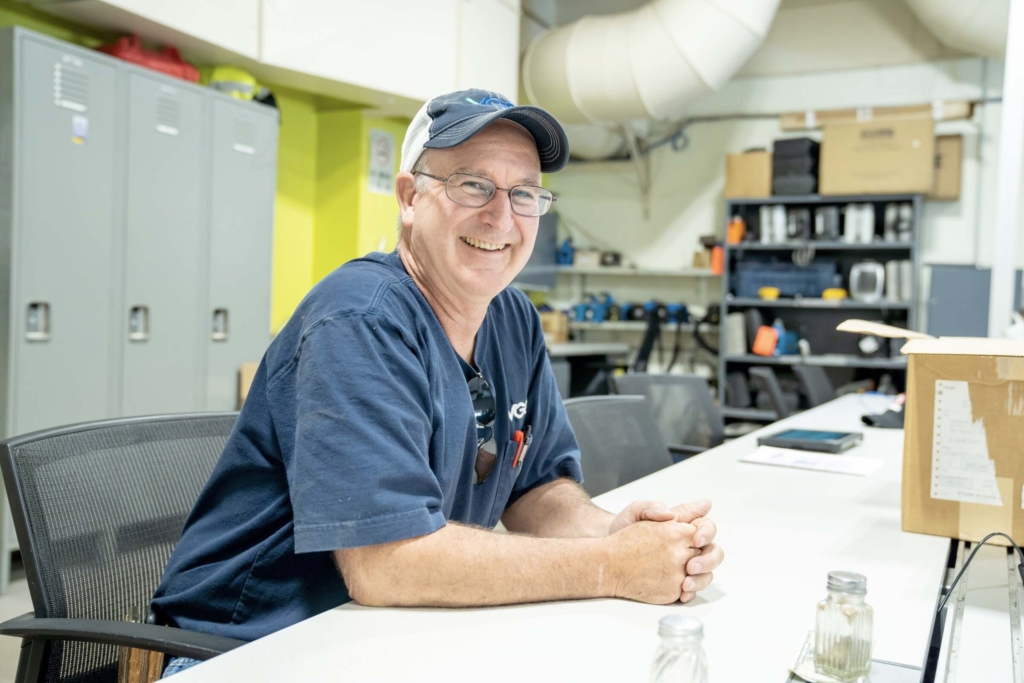What is the ‘Daily Access’ charge I see on my bill each month?
The Daily Access is a portion of our rates that helps cover the costs of delivering natural gas to you, such as maintaining service lines to your building, meter reading and monthly billing. This amount is approved by the Public Utility Commission.
You may notice a slight variation of this charge from month to month. Because it is a daily charge, it reflects the number of days in a billing period. Normally a billing period covers 28 to 32 days.
What about the other the detailed charges associated with my bill?
The Distribution Charge covers the cost of constructing, operating and maintaining the VGS pipeline system. The charge is based on the metered volume of gas. Five types of costs are reflected in the Distribution Charge:
- Pipeline Distribution System: Construction, ownership and financing of the VGS pipeline system, which transports and distributes gas from the Canadian border to almost 50,000 customers throughout northwest Vermont.
- Operations and Maintenance: Running a safe and reliable operation and maintaining the VGS pipeline system, including 24/7 monitoring and coverage. Safety measures include meter testing and remediation, pipeline and meter inspections and educating the public about the safe use of natural gas.
- Taxes: Payments to Federal, State and City/Town governments in the form of property taxes, gross receipt taxes and income taxes.
- Finance and Administration: General operating costs, such as accounting and finance, regulatory and other administrative costs.
The Natural Gas Charge is the cost of supplying natural gas. The charge is based on the metered volume of gas. There are four components to the cost of natural gas:
- Commodity costs: The wholesale cost of the natural gas.
- Pipeline transportation to Vermont: Transporting natural gas from the production areas in Canada to Vermont.
- Storage costs: Storing gas in the summer to be withdrawn during winter.
- Peaking costs: Reserving extra supplies to serve customers on the coldest (highest demand) days of the year.
The Energy Efficiency Charge is the cost to cover our Energy Efficiency Programs. This charge is based on the metered volume of gas and covers the following:
- Financial Incentives on installation of weatherization measures.
- Rebates on the purchase and installation of high efficient heating systems.
The Assistance Program Fee funds VGS’s Low Income Assistance Program (LIAP). The fee is a per meter, per bill charge, and funds the LIAP program that provides a 20% discount to income-eligible residential customers.
What is VGS doing to keep my home or business and my community safe?
Natural gas itself is among the safest forms of energy, but that’s not good enough for us. Safety is at the heart of everything we do at VGS– it is, by far, the most important job we have. We work tirelessly to keep the public, our employees and our pipeline infrastructure protected.
As proud members of DigSafe New England, we work closely with contractors and landowners to ensure any dig sites are properly marked with regard to gas lines. We coordinate with local fire departments and first responders and conduct comprehensive training to prepare employees—and any external contractors—to perform their jobs safely. VGS also conducts several drills each year to ensure our teams are fully prepared for any emergency.
We also maintain an aggressive emissions survey program; in fact, according to a 2014 Google Survey, VGS has one of the tightest systems in the country. As good as that is, we continue to work with our customers and our communities to make ongoing improvements.
I worry about my pipes freezing. Should I wrap them in electric heat tape?
Absolutely not! Electric heat tape uses a lot of energy. And worse, it can be a fire hazard. There is almost always a better way to deal with freezing pipes.
If your plumber or contractor recommends electric heat tape, be concerned. Call us for a list of insulation specialists.
Can my grill be hooked up to natural gas?
Many propane grills are easily converted to natural gas, and some models can be purchased natural-gas ready.
Is it true that a natural gas fireplace will keep going even if the power goes down?
It’s quite true that gas fireplaces with pilot lights will keep operating without electricity. You should look for a fireplace that’s rated as a space-heating appliance with an Annual Fuel Utilization Efficiency (AFUE) of approximately 80% or better. If you need more guidance on purchasing equipment, call or email us.
I’ve heard natural gas is cleaner than heating oil. How much difference is there really?
The difference is significant. Take sulfur dioxide, the main contributor to acid rain. Oil emits 1,122 pounds per billion BTUs; natural gas, 0.6 pounds. Natural gas also emits far less carbon dioxide and far fewer particulates than oil. And with natural gas, you won’t have to worry about fuel seeping into the earth, or your basement, from a leaky tank.
If you’d like to cut down on greenhouse gas emissions, utilizing VGS’s energy efficiency services, or choosing one of our heat pump options can help. VGS also offers Renewable Natural Gas (RNG) to families and businesses. RNG is created from the methane produced by the organic material in landfills, wastewater treatment facilities and farms. Learn more.
We’re moving into a new house. How can we be sure our energy costs are as low as possible?
It’s best to look at the big picture of energy usage. Many houses have a mixed bag of energy sources for heat and appliances — an electric water heater, natural gas or oil heating, an electric stove, a propane gas grill.
Statistics show that the most cost-efficient situation you can have is an all-natural-gas house. Using natural gas for everything — heat, hot water, cooking and clothes drying — will save you money.
Use our calculators to find out how much you can save by converting to natural gas, or submit a Free Estimate Request.

